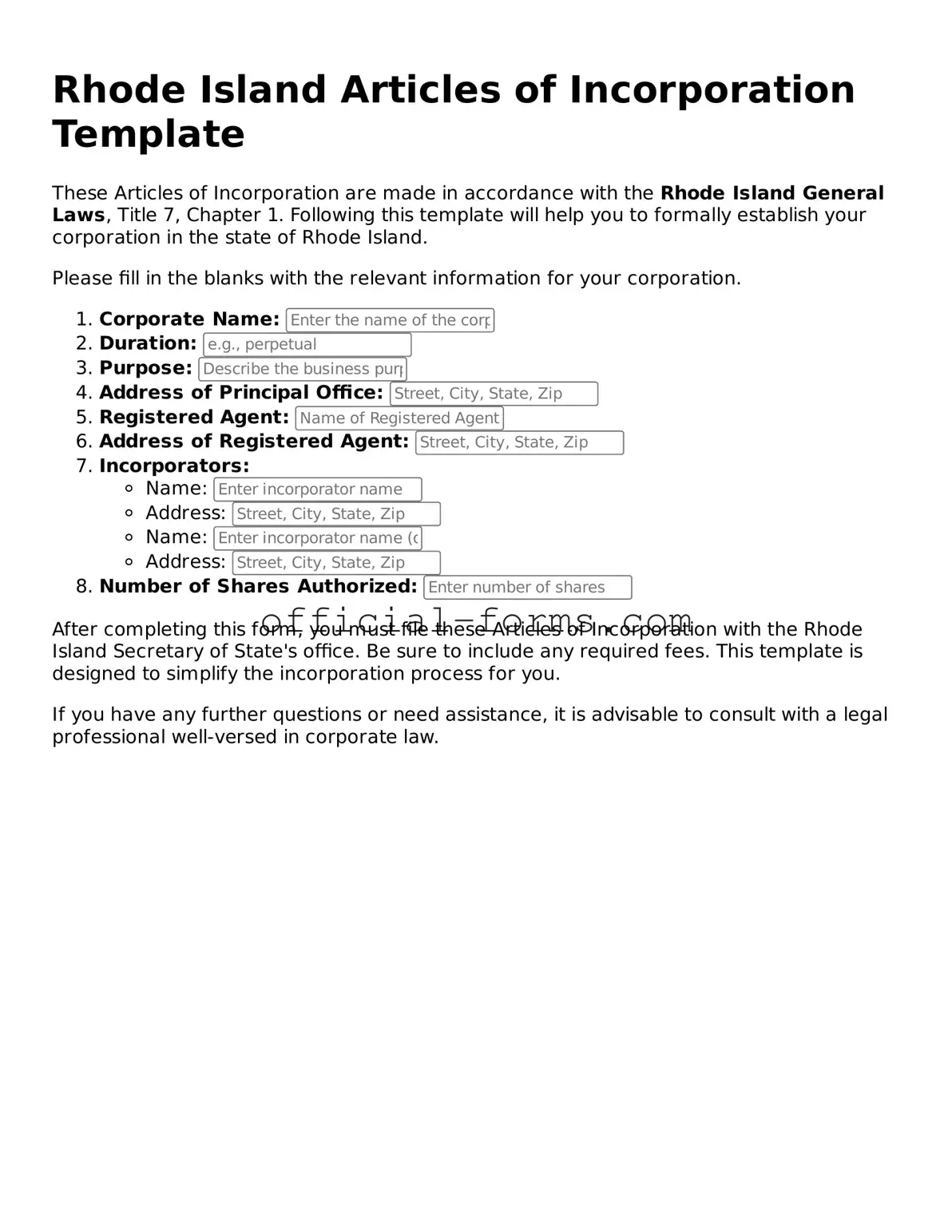Filing the Rhode Island Articles of Incorporation is a significant step in starting a business. However, many individuals make common mistakes that can lead to delays or complications. One frequent error is failing to provide the correct name for the corporation. The name must be unique and not deceptively similar to existing entities. If the name is not available, the filing will be rejected.
Another mistake involves the selection of the registered agent. The registered agent must have a physical address in Rhode Island and be available during business hours. Some people mistakenly list an individual who is not available or who does not meet the state's requirements. This can result in legal issues down the line.
Many applicants overlook the requirement to include the purpose of the corporation. While it may seem straightforward, a vague or overly broad description can lead to questions from the state. A clear and concise statement of purpose is essential for proper filing.
In addition, individuals often forget to include the names and addresses of the initial directors. This information is crucial for the state to identify who will be responsible for the corporation's management. Omitting this detail can result in a rejection of the application.
Another common mistake is neglecting to sign the form. The Articles of Incorporation must be signed by the incorporator. Failing to provide a signature will lead to processing delays or a complete rejection of the filing.
Some applicants also miscalculate the filing fees. Each corporation type may have different fees, and submitting the incorrect amount can result in the application being returned. It is important to verify the current fee structure before submitting the form.
People sometimes forget to include any required additional documents. Depending on the type of corporation, additional paperwork may be necessary. Not including these documents can lead to processing delays or complications.
Another mistake is not keeping a copy of the submitted form. Having a copy is essential for future reference and can help in resolving any issues that may arise. Without it, tracking the status of the application can become challenging.
Lastly, applicants may fail to check for updates or changes in the filing requirements. State regulations can change, and staying informed is crucial to ensure compliance. Regularly reviewing the requirements can help avoid mistakes and ensure a smooth filing process.

